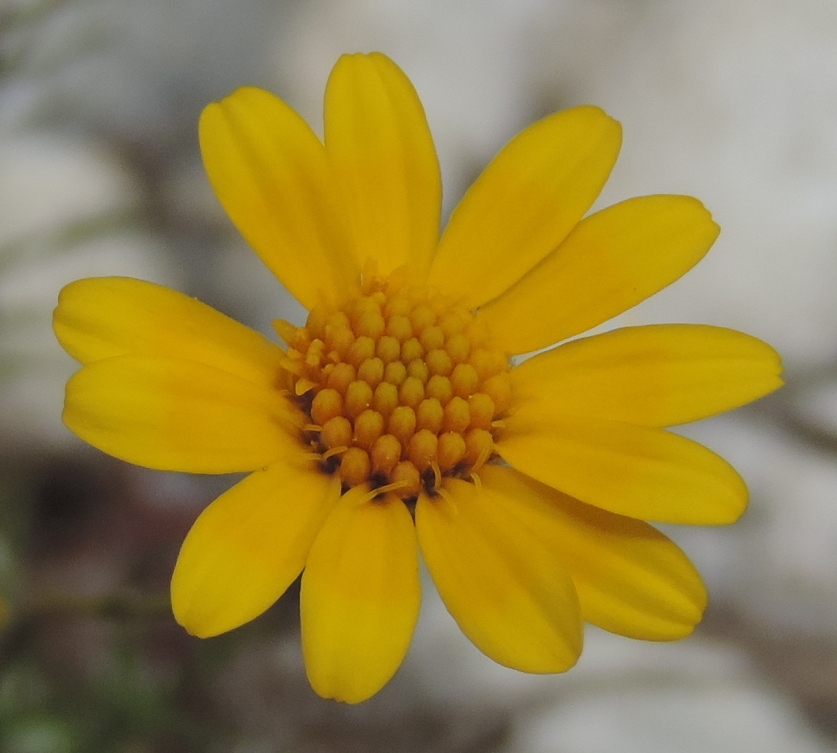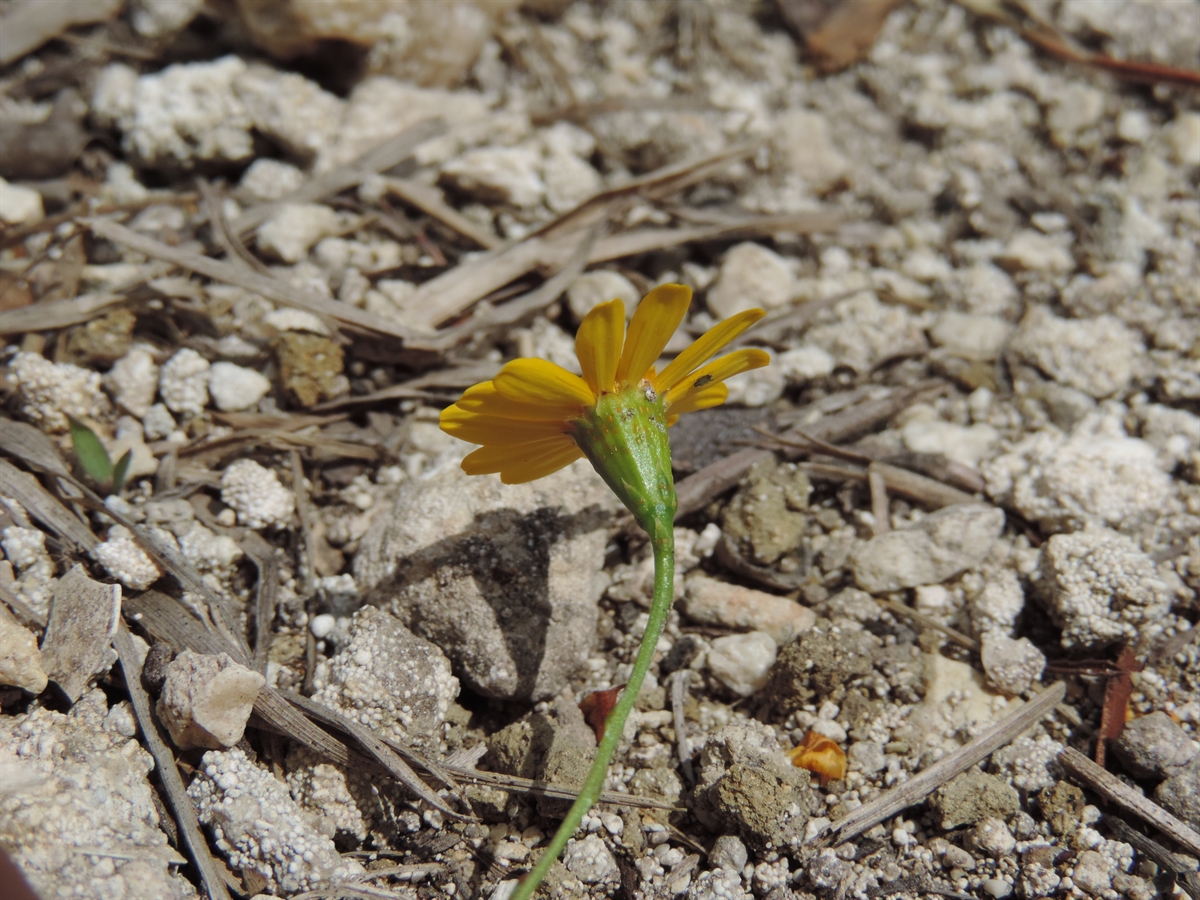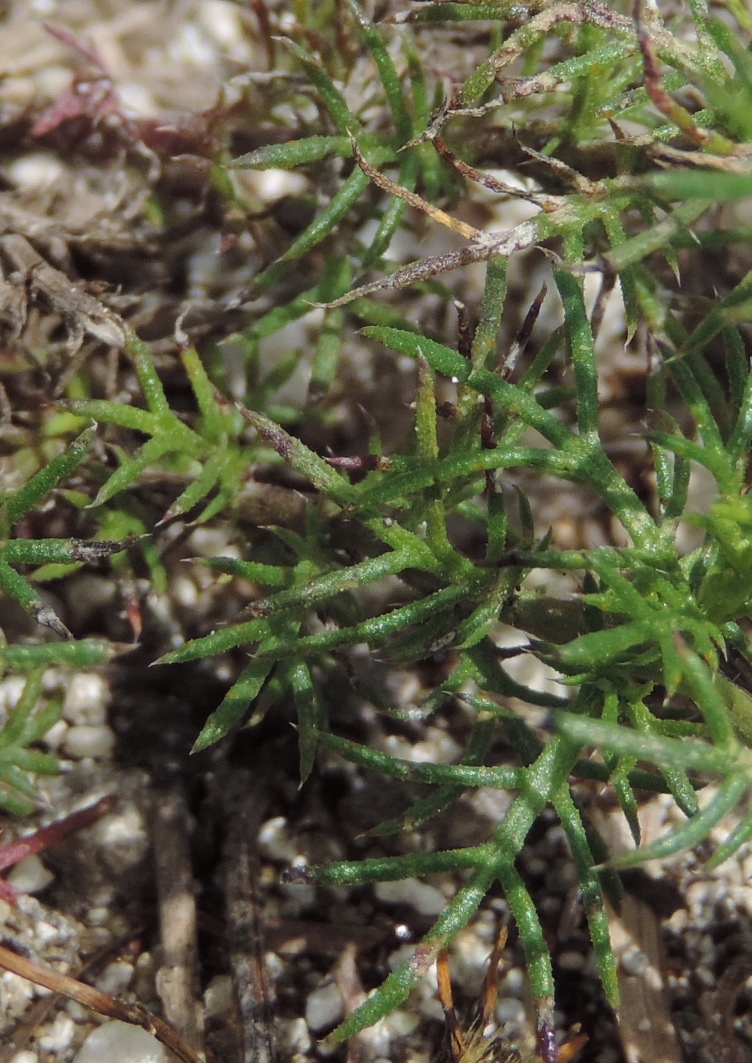Habit: Thymophylla tenuiloba is a glabrous to sparingly pubescent, annual herb up to 50 cm in height (usually less) that can grow as an individual or spreading. Leaves arranged alternately, with linear filiform lobes, to 3 cm in length with glands along the margins of the lobes.
There are both perfect and imperfect (carpellate) flowers into solitary heads. The heads are subtended by a series of involucral bracts (phyllaries). The perfect (disc) flowers are in the center and the imperfect (ray) flowers are arranged around the edge of the heads. Each flower is subtended by bracts. The calyx is modified as a ring of small projections (pappus) as hairs
The incomplete, imperfect, zygomorphic flowers have 3 orange fused petals and no stamens. The complete, perfect, actinomorphic flowers have a corolla with 5 fused, orange petals. The disc flowers are a deeper orange than the ray flowers. There are 5 stamens fused at their base. In both types of flowers, the ovary is inferior with a single locule but only the imperfect flowers have functional ovules. The fruit is an achene at maturity that retains the modified calyx (pappus) as hairs.
Habitat: Thymophylla tenuiloba grows in Human Altered environments (yards, roadsides, fields).
Distribution: Thymophylla tenuiloba is NOT native to the Lucayan Archipelago. It naturally occurs in the southern United States but has spread to distant places around the globe including the Middle East, Australia, the Caribbean, and Mauritius.
Medicinal/Cultural/Economic usage: Thymophylla tenuiloba is not known to be used medicinally in the Lucayan Archipelago.


